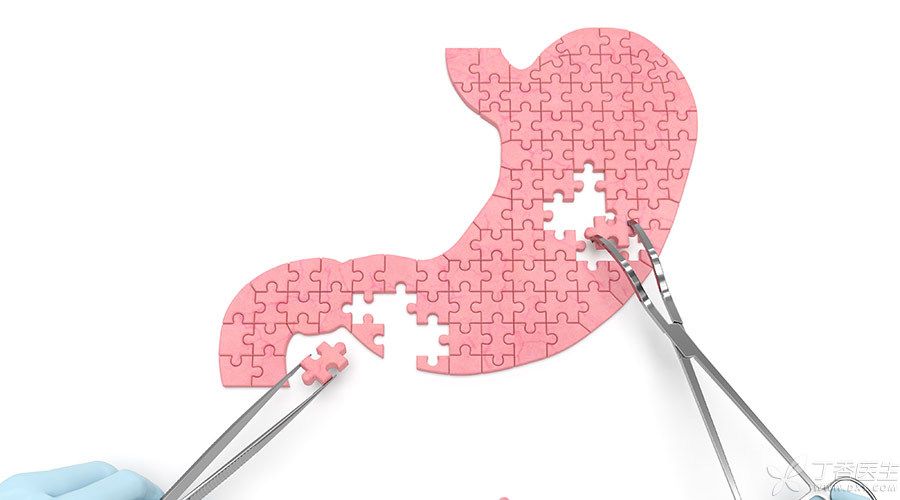
Among the most common cancers in our country, gastric cancer ranks second, and the number of gastric cancer in our country is especially large, accounting for 40% of the world’s total.
Although the high incidence age of gastric cancer is 50-80 years old, the number of young gastric cancer patients aged 19-35 years old has doubled in the past five years compared with 30 years ago, which shows how important the prevention of gastric cancer is.
However, who is more likely to get gastric cancer and needs more examination? Dr. Clove will tell you about it.
Gastric cancer favors these people
Be careful if you are in the following categories:
-
Men over 40 years old: Gastric cancer patients over 40 years old account for more than 96% of the total number of gastric cancer patients, while men are more than twice as likely to suffer from gastric cancer as women.
-
People with heavy tastes: especially those who are accustomed to eating high salt, pickled and smoked food.
-
People with stomach problems: people with Helicobacter pylori infection, stomach surgery, or precancerous diseases (such as chronic atrophic gastritis, gastric ulcer, gastric polyp).
-
People with a family history of tumor diseases: for example, parents have suffered from gastric cancer, intestinal cancer and other diseases.
-
People with related diseases: for example, pernicious anemia, because patients with pernicious anemia often have atrophic gastritis.
-
People with bad living habits: such as long-term smoking, drinking, not loving exercise, obesity, etc.
However, I would like to add here that gastric cancer is generally the result of a variety of factors and long-term effects. Different regions, different sanitary conditions and different physical conditions have an impact.
Although everyone does not need to take their seats accordingly, they should also pay enough attention to it.
Only how can [discover] early?
Most early gastric cancer has no symptoms or only some less obvious symptoms, so it is very difficult to diagnose early gastric cancer.
However, it was found that gastric cancer has a unique skill-gastroscope.
Gastroscopy screening can greatly improve the chance of early detection of gastric cancer. Here we have to mention the experience of Japan and South Korea.
Japan and South Korea, like China, belong to areas with high incidence of gastric cancer.
Since the 1960s, Japan has conducted a general survey of gastric cancer among people over 40 years old, with an early detection rate of over 60%.
South Korea conducts screening among people over 40 years old, and the early detection rate of gastric cancer is about 40%.
Therefore, Dr. Clove also recommends high-risk groups to find early gastric cancer through gastroscopy.
For gastroscopy, there are currently 4 suggestions:
-
If people over 40 have never had a gastroscope, they can have it examined immediately.
-
If there is no problem with the examination and you have no symptoms, you can review the gastroscope once every 3-5 years.
-
Patients with atrophic gastritis should have gastroscopy reviewed every 1 ~ 3 years.
-
Pathological biopsy confirmed that patients with intestinal metaplasia should have gastroscopy reviewed once every six months to one year. Patients with low-grade intraepithelial neoplasia (i.e. Mild atypical hyperplasia) confirmed by pathological biopsy should have gastroscopy reexamined from March to June.
How to Prevent Gastric Cancer?
STEP 1 Maintain good living habits
Although this Tiger Balm proposal has been said many times, it is applicable to almost any disease and must be repeated:
- Eat more fresh fruits and vegetables. Low-salt diet, eat less pickled and smoked foods. Quit smoking and drinking. Insist on exercise and control weight.
2. Control Helicobacter pylori
Studies have shown that Helicobacter pylori infection is closely related to gastric cancer.
People with high-risk factors for gastric cancer (such as atrophic gastritis, intestinal metaplasia, dysplasia precancerous lesions, and family history of gastric cancer) should be examined for Helicobacter pylori. If it is positive, drug eradication therapy is required.
People with recurrent gastric and duodenal ulcer who need long-term acid inhibitor treatment should also check Helicobacter pylori. If it is found to be positive, eradication treatment should also be carried out.
3. Regular physical examination and treatment of precancerous lesions
If the early symptoms of gastropathy are found in regular physical examination, further examination and treatment should be carried out next.
For precancerous diseases such as atrophic gastritis, gastric polyps and gastric ulcers, as well as postoperative residual stomach, especially patients accompanied by intestinal metaplasia and intraepithelial neoplasia (i.e. Atypical hyperplasia), standardized treatment and regular review must be carried out, so as not to drag minor problems into major problems.
In fact, the reason why cancer is difficult to treat is that it ignores the usual examination. It is often the middle or late stage to see a doctor only when there are symptoms.
Therefore, in addition to our own understanding, Dr. Clove also hopes that everyone will tell the people around us this knowledge.
Only by doing a good job of prevention together can we truly stay away from cancer.
